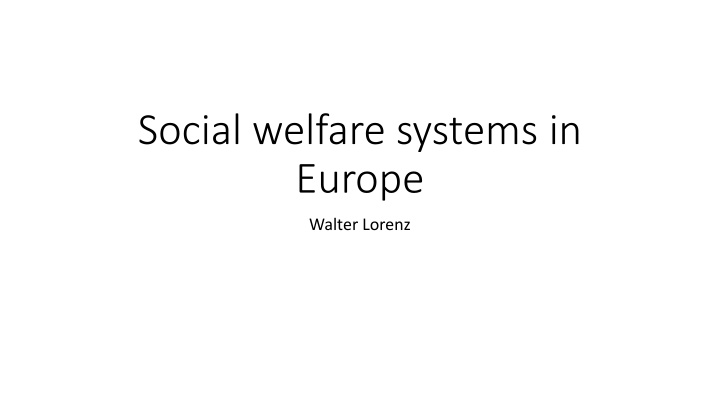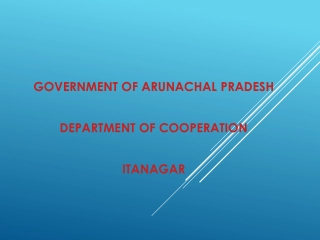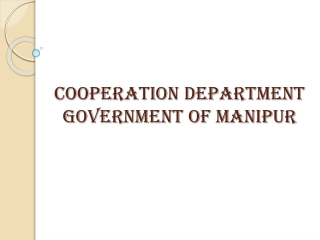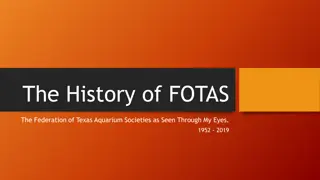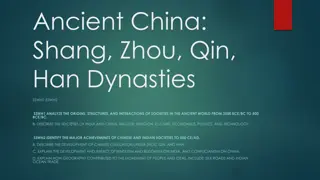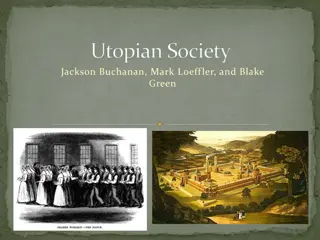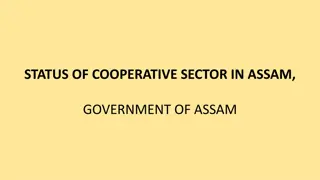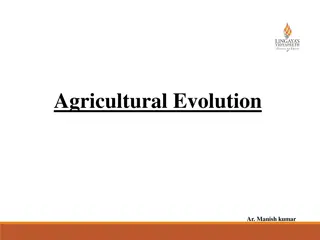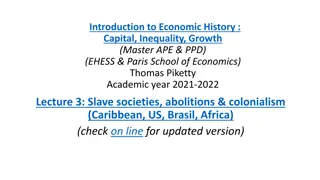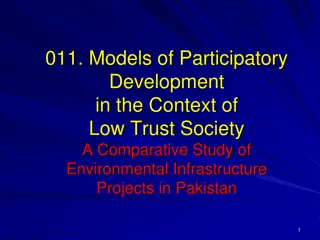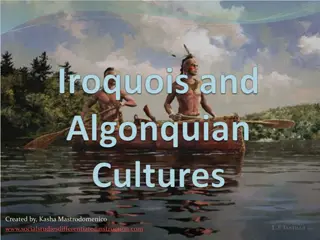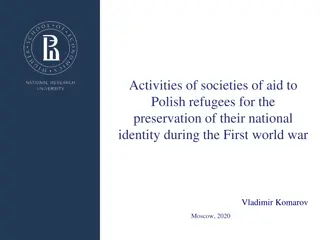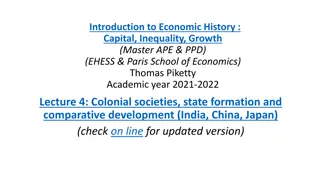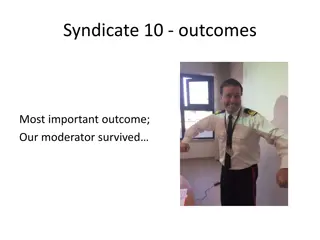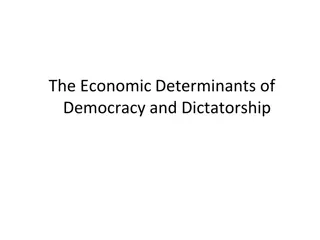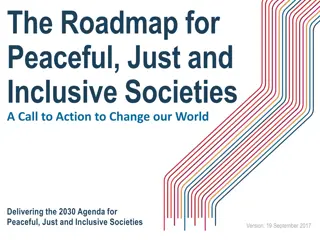Challenges and Solutions in Modern Societies
Understanding the importance of social welfare systems, social policies, human community needs, and various forms of capital in modern societies. The political challenge of capitalism in creating unequal distributions of capital and the central question of who is responsible for solving social problems.
Download Presentation

Please find below an Image/Link to download the presentation.
The content on the website is provided AS IS for your information and personal use only. It may not be sold, licensed, or shared on other websites without obtaining consent from the author.If you encounter any issues during the download, it is possible that the publisher has removed the file from their server.
You are allowed to download the files provided on this website for personal or commercial use, subject to the condition that they are used lawfully. All files are the property of their respective owners.
The content on the website is provided AS IS for your information and personal use only. It may not be sold, licensed, or shared on other websites without obtaining consent from the author.
E N D
Presentation Transcript
Social welfare systems in Europe Walter Lorenz
Humans need community which is not provided naturally biological necessity (humans are creatures with a prolonged dependency on others after birth) psychological necessity (specifically human abilities such as language, security, sense of self, only develop in interaction with others) economic necessity (relative self-sufficiency can only be achieved in groups; division of labour even in primitive societies between food gathering or hunting, food preparation, care work, cultural achievements ..) social necessity (roles, patterns of behaviour, expectations, lines of authority) learned in community
Importance of capital in modern societies Pierre Bourdieu: capital can be understood as a form of fuel which enables agents to reproduce their position within the social field and represents the immanent structure of the social world. Depending on the field where it functions, capital can manifest itself in three radical forms: economic, cultural, and social capital. economic capital: individual material assets which can be directly and easily convertible into money Cultural capital: a form of capital that is convertible, in certain conditions, into economic capital and maybe institutionalized in the form of educational qualifications social capital: the network of social relations which increases the ability of an actor to advance her/his interests
The political challenge of modernity: capitalism capitalism creates the unequal distribution forms of capital unequal distribution of all For the middle classes financial capital (property, ownership of the means of production) ensured also the acquisition of human capital (servants, labourers) so that they were free to accumulate social capital: leisure time in clubs, hobbies, trade fairs, commercial partners political parties. For the working classes this means not only less financial capital but also restrictions on social capital
central question: who is now responsible for solving social problems? individuals in which case they need to be made aware of their responsibility, probably through deterrents (threat of the workhouse) volunteers (the churches, humanitarian projects, philanthropy) by helping informally public organisations police, institutions (schools, hospitals, asylums), social workers.
State Civil society (community) Private sphere (individuals, market)
What makes you belong belong to a nation state? Having passport? Being able to vote? Being protected by the law against unfair treatment? Enjoying public services? Feeling the state is looking after my health and social needs when I have no other resources? Which of these measures are being provided by the European Union?
The wider meaning of welfare in modern societies Well-being is not just the absence of suffering (which would be of interest only in crisis situations or for people in marginal positions through illness, poverty, social conditions, delinquency ) - BUT Well-being describes essential elements of social existence - Freedom from threats (physical, mental security) - Access to basic resources (food, shelter, education) - Legal integrity (protection against unfair and unjust treatment) - The right to belong to social units (family, community, associations, nation state)
citizenship citizenship as the guarantee of being fully recognised as a person, the right to belong the right to belong T.H. Marshall s Theory of stages of the development of citizenship: Civil citizenship (1700s): the rights necessary for individual freedom, like personal liberty, freedom of speech, right to own property, freedom of thought / religion etc. The institutions most directly associated with civil rights are the courts of justice. Political citizenship (1800s): the right to participate in the exercise of political power (active and passive vote, founding and joining parties) Social citizenship (1900s): the right to be publicly recognised as equally vulnerable and hence worthy of protection by public institutions and in law (pensions, health and education as a right, regulated labour)
Welfare therefore becomes a political (even where it is provided mainly privately) political issue issue At issue are basic values that constitute the foundations of the creation of modern societies: The demand for equality (rights, participation, democracy, legitimation) The demand for personal freedom (freedom to be oneself , free from interference by others, free to have one s own opinion, to live according to one s own principles). See Corona Crisis responses However, both principles cannot be satisfied by the efforts of the individual alone nor by the delegation to the state: the principles are potentially in conflict with each other but also converge towards the necessity to constantly negotiate between them
Necessity to move towards social citizenship: Democracy and participation are at risk of becoming meaningless if the state (the collective) either does not care for the everyday concerns of citizens or dominates their lives so totally (authoritarianism) that they cannot enjoy any margin of self-determination and freedom Providing social protection (welfare) is essential for the political legitimation of the state and for the integration of society People who are left without protection fall out of society, have no interest in democratic processes ( dangerous mob , source of unrest, anarchy, disobedience, have nothing to lose)
Norbert Elias: civilizing processes to be a citizen not only means having basic civil liberties, political power and civic responsibilities, but also living a civilized life. And what civilized means (i.e., the norms and standards defining how the individual should live and act as a full member of the political community) has gradually been incorporated in the definition of citizenship. And in later phases of social existence, this enriched idea of citizenship has fed back into what a given society views as wellbeing and deprivation (Townsend, 1979), which in turn, had a significant impact on welfare institutions, too. (rising expectations!) Welfare is a dynamic process, not a static state
Discussion What can the state provide that no other institution or level of society independent of the state can provide? (list activities) What are the dangers associated with an over-reliance on the state? What services can civil society organisations provide best and why? (examples and reasons) What are the limitations to your knowledge of what is best for myself and how does this affect your sense of freedom (give examples)
Correspondence citizenship to welfare regimes Libertarian (United Kingdom) residual welfare: Freedom, personal responsibility State only last resource in situations of need, people should make their private care and security arrangements
Correspondence to welfare regimes Libertarian (United Kingdom) Social democratic (Nordic Countries) residual welfare: Freedom, personal responsibility State only last resource in situations of need, people should make their private care and security arrangements Entitlements: equal rights for citizens State should provide good quality services for everybody irrespective of their income, social provisions according to need not according to ability to pay
Correspondence to welfare regimes Libertarian (United Kingdom) Social democratic (Nordic Countries) Civic republican (Germany) residual welfare: Freedom, personal responsibility State only last resource in situations of need, people should make their private care and security arrangements Entitlements: equal rights for citizens State should provide good quality services for everybody irrespective of their income, social provisions according to need not according to ability to pay Bismarckian subsidiarity (emphasis on civil society organisations like church or philanthropy, state only coordinates
Whose problem is it? Whose problem is it? Individuals should take care and make personal provisions practice instrument Savings or private insurance, market Liberalism Example: United Kingdom Political ideology principle Freedom
Whose problem is it? Whose problem is it? Individuals should take care and make personal provisions The collective (the state) should protect its citizens who in turn show their loyalty practice instrument Savings or private insurance, market State insurance and public social services Liberalism Example: United Kingdom Political Social democracy Example: Nordic Countries ideology principle Freedom equality
Whose problem is it? Whose problem is it? Individuals should take care and make personal provisions The collective (the state) should protect its citizens who in turn show their loyalty Civil society should should respect traditional values and forms of helping practice Family and established aid organisations (churches, Red Cross, Philanthropy) instrument Savings or private insurance, market State insurance and public social services Liberalism Example: United Kingdom Conservatism Example: Germany (Bismarck) Political Social democracy Example: Nordic Countries ideology principle Freedom equality duty
